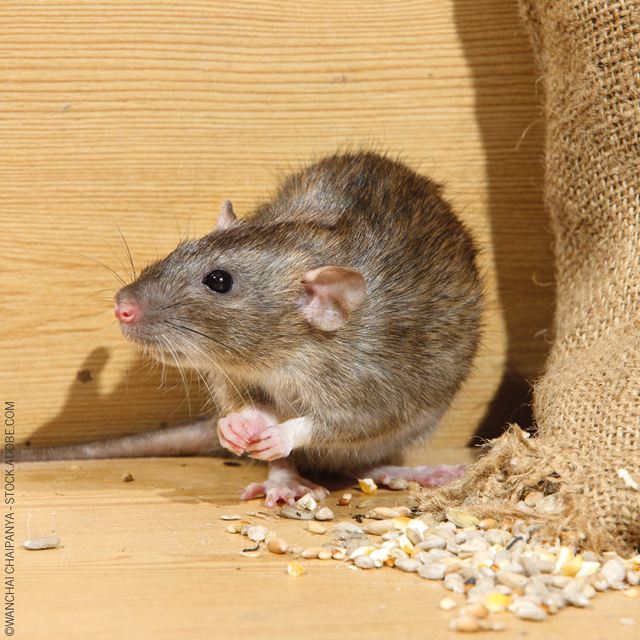As temperatures rise and strict pandemic regulations begin to lift, you may notice an uptick in foot traffic entering your restaurant. During these times, customers may not be the only visitors scurrying in for a good meal. The same elements that bring in customers can also, unintentionally, invite in unwelcome guests. If you’re not careful, your restaurant can easily become a dining destination for pests.
These tormentors reproduce rapidly, and small populations become full-blown infestations in very little time. Rat feeding habits are destructive, and through their gnawing, defecation, and nesting behaviors, the structure of infested buildings can be compromised. Your customers may also be harmed, because rodents are responsible for the transmission of many diseases. That is why it’s important to have an expert complete regular inspection of all areas of your restaurant; however, there are also steps you can implement to help prevent infestation and maintain a rodent-free restaurant.
Being proactive with your pest control measures can save you a lot of headaches and money.
Food storage. Food for humans is also food for rodents, so it’s important to store your goods so that rodents cannot easily access them. Dry goods should be kept in sealed metal or glass containers to prevent contamination. Fruits and vegetables should be stored in refrigerators; if they are in a walk-in refrigerator, they should be at least six inches off the ground and at least 12 inches away from walls to allow easy inspection for rodent evidence and effective placement of rodent control devices. Ensure proper ventilation in your food storage spaces to keep moisture down, which discourages pest activity as well.
Dispose of cardboard. Remove these objects from your kitchen area. The material attracts rodents, which tend to chew them up and use the shredded pieces in their nests.
Seal openings. Due to their body shape, rodents are capable of squeezing through spaces that appear to be much too small for them: Rats can fit through holes the size of a quarter, and mice can fit through ones the size of a dime. All holes should be sealed to help prevent entry and reentry of rodents.
Keep garbage cans and dumpsters clean and secure. Waste from the restaurant is most likely what is attracting rodents. Once they discover food outside, they will go inside to search for more. It is essential to cover trashcans and dumpsters with tight-fitting lids to avoid piquing their appetites. Accessible trash also nourishes a rodent population, allowing their numbers to grow and increasing foraging activity around your building. Keeping trash areas clean is also crucial to keeping any type of exterior bait programs successful.
Maintain a clean workspace. Any scraps, crumbs, or odors will attract unwanted rodent attention. A clean environment minimizes temptation and reduces the risk of disease. Cleaning up clutter will help prevent pest harborage areas. Rodents look for places to nest and breed, and can multiply rapidly when sufficient food, water, and shelter are available. Do not overlook storage areas and closets where clutter can gather, and clean out boxes, papers, and unused items regularly.
Take care of your landscaping. Regular upkeep, such as mowing and trimming around your restaurant, can help make the outside less inviting to rodents. Remove tall weeds, grass, and ground cover such as ivy, juniper, and liriope from around the exterior to keep rodents from hiding or burrowing near the building, lying in wait to sneak in.
Unfortunately, many times restaurant owners do not realize there is a problem until it is too late. These tricky pests often go unnoticed as they penetrate packaging by either chewing or squeezing through weak points and gaps. Aside from compromising your restaurant’s image and reputation, these visitors can contaminate food products. Additionally, these pests can transmit diseases such as E. coli, Salmonella, and Trichinae. Infestations can rapidly spread to different products, eventually harming the customer and your business. It is best to get ahead of a rodent infestation if you can. Being proactive with your pest control measures can save you a lot of headaches and money.
ACCESS THE FULL VERSION OF THIS ARTICLE
To view this article and gain unlimited access to premium content on the FQ&S website, register for your FREE account. Build your profile and create a personalized experience today! Sign up is easy!
GET STARTED
Already have an account? LOGIN

